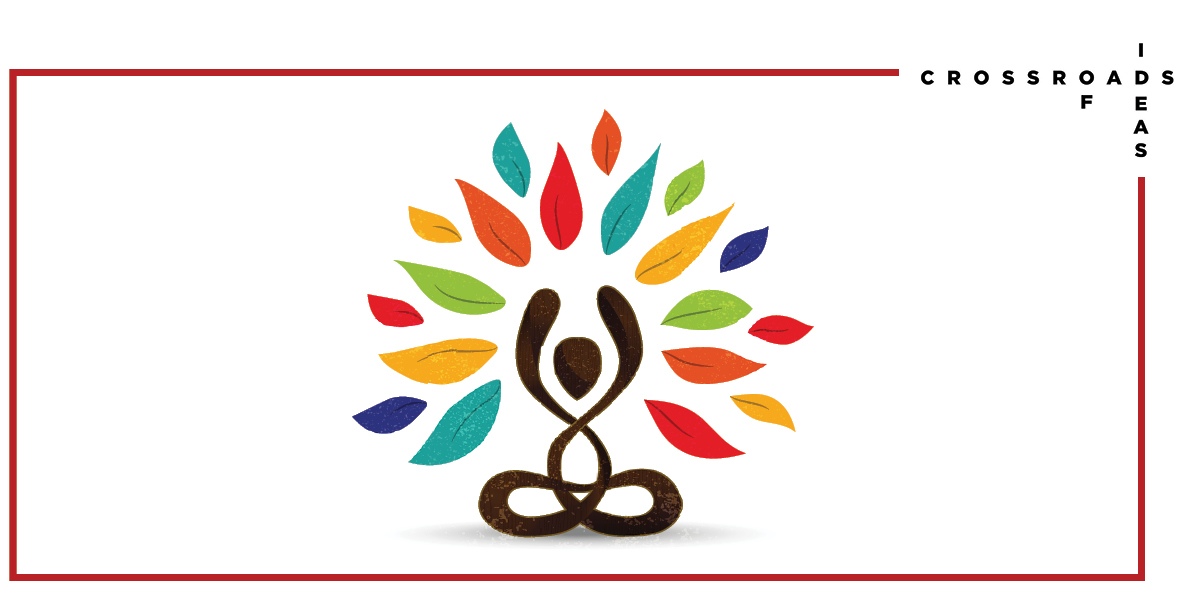Join us Feb. 8 for part three of the ‘Big Questions’ series
CONTACT:
Jeanan Yasiri Moe
Director of Strategic Communications
[email protected] | (608) 960-9892
MADISON, Wis. – The Big Questions series continues this year with a deep dive into what science and philosophy have to say about happiness, something we all wonder about. Hear insights from research exploring the relationship between happiness and virtue, as well as perspectives on well-being and values.
Last year, Crossroads of Ideas teamed up with the UW-Madison Institute for Research in the Humanities for a five-part miniseries that examines big topics in philosophy, from free will to consciousness, morality and more. Join us for the third installment at 7 p.m. on Tuesday, February 8, as we examine happiness.
“We all strive for happiness, but why is it valuable? Can you have a good or meaningful life without happiness? Are there good or bad reasons to feel happy? What features of our psychology and environment determine the extent to which we can experience happiness?” asks Larry Shapiro, UW-Madison professor of philosophy.
“We are fortunate to have two experts, one a philosopher and the other a psychologist, to help us sort through these important questions in the next meeting of the Big Questions series.”
The February 8 discussion will feature:
- Pelin Kesebir, honorary fellow at the UW-Madison Center for Healthy Minds
- Valerie Tiberius, professor of philosophy at the University of Minnesota
- Moderator Kayla Huynh, higher education reporter, The Cap Times
Other events in this series include:
- October 12: What is life?
- November 9: What is consciousness?
- March 8: What is free will?
- April 5: What is morality?
The Crossroads of Ideas program is a public lecture series that addresses topics that matter to our community and are the subject of research at UW-Madison. The series generally is held in-person at the Discovery Building on the UW campus and is also available via livestream.
“This question, perhaps more than any other in this compelling miniseries, matters to many of us on a day-to-day basis now more than ever as we enter the third year of the pandemic. We are fortunate to have tremendous experts on our campus and relationships with thought leaders nationally to help us connect to research on these kinds of questions that impact our daily lives,” says Laura Heisler, WARF director of programming and curator of the series.
About WARF
The Wisconsin Alumni Research Foundation (WARF) helps steward the cycle of research, discovery, commercialization and investment for the University of Wisconsin-Madison. Founded in 1925 as an independent, nonprofit foundation, WARF manages more than 2,000 patents and an investment portfolio as it funds university research, obtains patents for campus discoveries and licenses inventions to industry. For more information, visit warf.org.
About the Institute for Research in the Humanities
The Institute for Research in the Humanities (IRH) fosters research in the humanities and humanistic social sciences by creating a stimulating, intellectual community in which fellows can pursue their scholarly work, share it with other fellows and members of the campus, and benefit from intensive discussion with scholars from diverse disciplinary backgrounds, fields, interests, and methodological perspectives. For more information, visit irh.wisc.edu.
###
